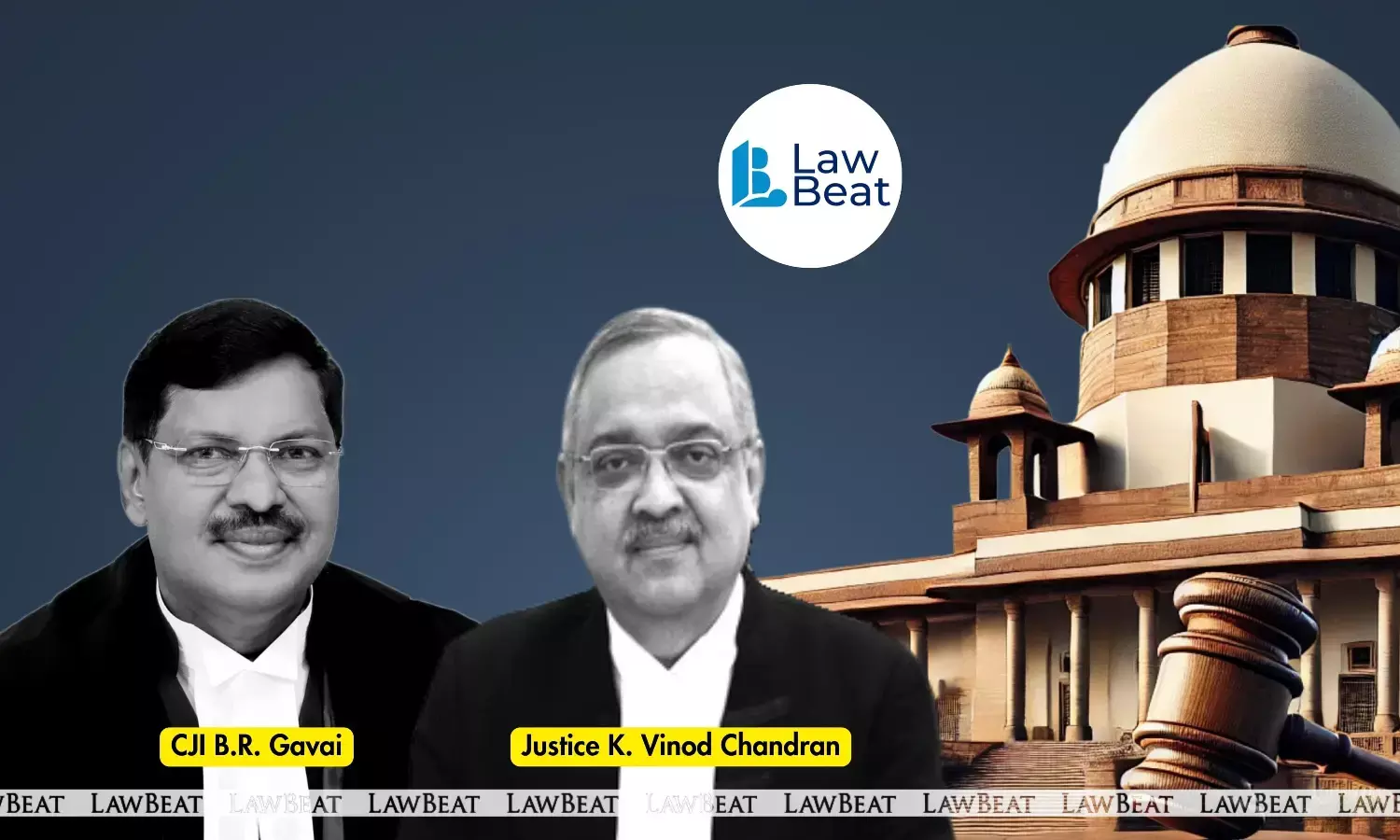Fraudulent Conversion Laws: Supreme Court asks states to respond in four weeks

SC rejects "overambitious" plea to club multiple FIRs in investor defalcation cases across seven states
The Supreme Court today has granted four weeks to the states for filing their responses on various petitions challenging the constitutional validity of anti-religious conversion laws enacted by several states in the country.
The laws under challenge include the Himachal Pradesh Freedom of Religion Act, 2019; the Madhya Pradesh Freedom of Religion Ordinance, 2020; the Uttar Pradesh Prohibition of Unlawful Conversion of Religion Ordinance, 2020; and a similar enactment in Uttarakhand. These statutes aim to prohibit forced or fraudulent religious conversions, but have come under intense scrutiny over alleged misuse and infringement on individual freedoms.
A bench of CJI BR Gavai and Justice K Vinod Chandran today directed the states to file their responses within four weeks on the petitions and the applications seeking stay. Two additional weeks have been granted to the petitioners for filing rejoinders, if any.
Court was told today by Additional Solicitor General KM Nataraj that after notices were issued in 2022, the matters could not be taken up. The bench was further informed of the amendments made to a few laws.
Earlier, Supreme Court had while hearing pleas challenging the anti-conversion laws of various states ordered that a transfer petition shall be filed before it, for the purpose of transferring all litigation pending before the High Courts across the country.
Jamiat Ulama-I-Hind had also moved the Supreme Court against the laws promulgated for the prohibition of “love jihad” and other modes of unlawful religious conversion.
The petition has been filed against the Uttar Pradesh Prohibition Of Unlawful Conversion Of Religion Act, 2021, the Uttarakhand Freedom Of Religion Act, 2018, the Himachal Pradesh Freedom Of Religion Act, 2019, the Madhya Pradesh Freedom Of Religion Act, 2021 and the Gujarat Freedom of Religion (Amendment) Act, 2021.
The plea states that the said laws force a person to disclose his faith and thereby invade into the privacy of a person. It submits that the compulsory disclosure of one’s religion in any form amounts to violation of the right to manifest his/her beliefs as the said right includes the right not to manifest one’s beliefs.
In view of the issue of love jihad, the plea submits that several times in cases of interfaith marriages, a person converts to embrace the faith of their spouse. Interfaith couples often bear the brunt of being ostracized from the community, so much so that the families engage in the crime of “honour killing”, thereby murdering their very own kith and kin, who have dared to marry outside their faith, the plea reads.
Relying on the above, the plea submits that "in majority of cases, even if a person converts out of his/her own free will, the family members of the convert object to such conversion. The provisions of the Impugned Acts which entitle the family members to lodge an FIR, virtually give them a fresh tool for harassing the convert. It is submitted that the Impugned Acts are being misused by the disgruntled family members."
Notably, the bench has also de-tagged the plea filed by Advocate Ashwini Kumar Upadhyay, supporting anti-conversion laws and seeking a composite law against fraudulent conversions. His plea seeks directions to the Centre and States for taking stringent steps to control fraudulent religious conversion and conversion by intimidation, threatening, deceivingly luring through gifts and monetary benefits and also by using black magic, superstition, and miracles.
“Several unethical predatory conversion strategies are commonly used. One method is material enticement in which humanitarian aid or economic, educational, medical or social assistance is offered on the condition that the person converts. Another is the denigration of the person's religion to make a new religion appear superior. A third unethical, a predatory method is the promotion of ‘bigotry’ i.e. knowingly and intentionally promoting religious hatred & violence. Predatory proselytization tears apart the fabric of the communities where it occurs and has led to the annihilation of cultures”, Upadhyay's petition further states.
Case Title: Citizens for Justice and Peace v. State of Uttar Pradesh & Anr. & connected matters
Hearing Date: September 16, 2025
Bench: CJI Gavai and Justice Vinod Chandran
